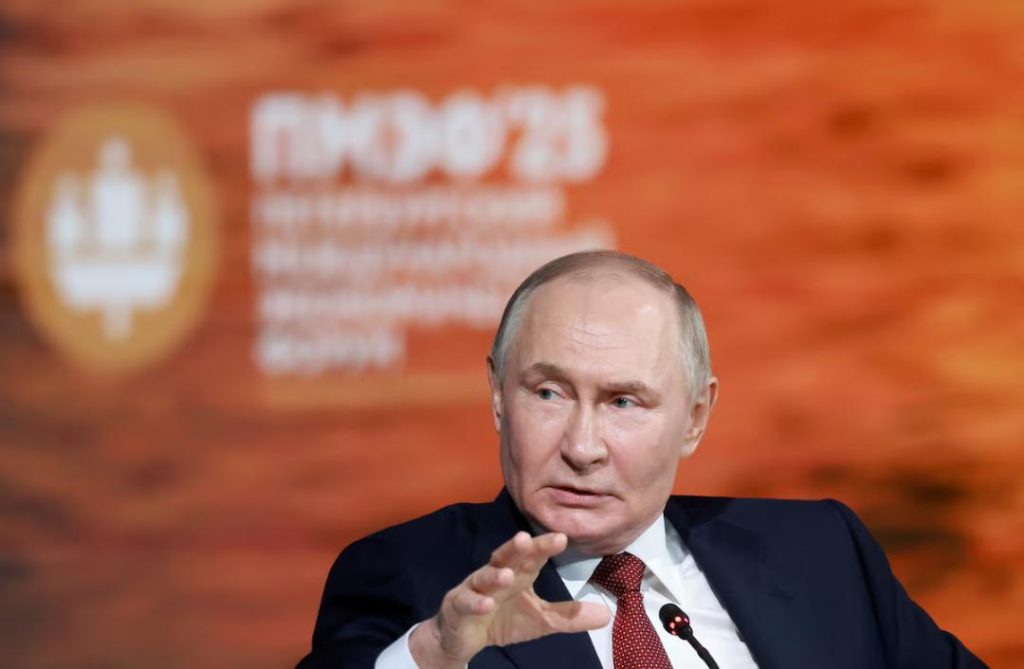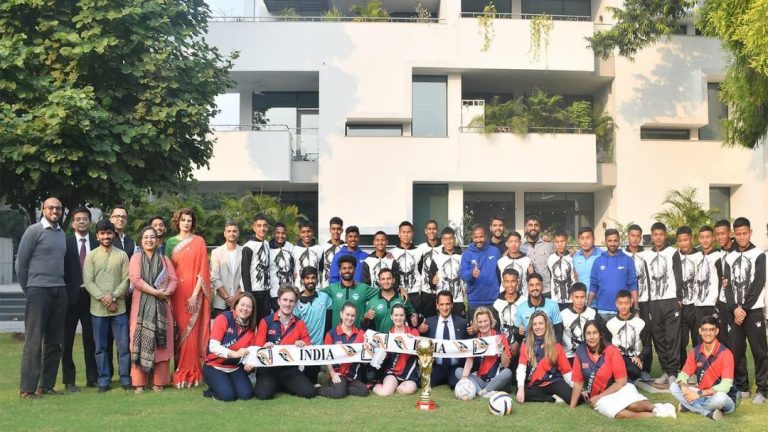
It is Right Under Our Noses: Putin on Potential World War III
In a stark and ominous warning, Russian President Vladimir Putin has stated that the world is heading towards a potential World War III, and it is “right under our noses”. When asked if the world is on the brink of a global conflict, Putin replied with a chilling sincerity, “I am speaking without any irony, without any jokes. There is a lot of conflict potential, it is growing, and it affects us directly.”
Putin’s comments come at a time when tensions between major world powers are at an all-time high. The ongoing crisis in Ukraine, the escalating tensions between the United States and China over Taiwan, and the increasingly volatile situation in the Middle East are all contributing to a sense of unease and uncertainty.
The Russian President’s warning is a stark reminder that the threat of global conflict is not just a theoretical concept, but a very real and present danger. As Putin pointed out, the potential for conflict is growing, and it is affecting us directly.
So, what are the key factors that are contributing to this growing conflict potential? And what can be done to prevent a global conflict?
Factors Contributing to the Growing Conflict Potential
-
Geopolitical Tensions: The ongoing crisis in Ukraine, which has seen Russia annex Crimea and support separatist rebels in eastern Ukraine, has created a sense of unease in the region. The situation has also led to increased tensions between Russia and the West, with the United States and its allies imposing economic sanctions on Russia.
-
Rise of Nationalism: The rise of nationalism in many parts of the world is also contributing to the growing conflict potential. Nationalist movements often prioritize the interests of their own country over those of other nations, which can lead to conflicts.
-
Cyber Warfare: The increasing use of cyber warfare as a tool of conflict is also a major concern. As technology advances, the threat of cyber attacks is becoming more sophisticated, and the potential for these attacks to cause widespread damage is growing.
-
Nuclear Proliferation: The development of nuclear weapons by some countries is also a major concern. The threat of nuclear war is a very real one, and the potential consequences of such a conflict are catastrophic.
-
Climate Change: The impact of climate change is also contributing to the growing conflict potential. Rising sea levels, droughts, and extreme weather events are all having a significant impact on global stability, and are contributing to tensions between countries.
What Can Be Done to Prevent a Global Conflict?
-
Diplomacy: Diplomacy is the key to preventing a global conflict. Countries must work together to find solutions to their differences, and to prevent the escalation of tensions.
-
Dialogue: Dialogue is essential in preventing a global conflict. Countries must be willing to listen to each other’s perspectives, and to work together to find solutions.
-
International Cooperation: International cooperation is also essential in preventing a global conflict. Countries must work together to address global challenges, such as climate change, and to prevent the spread of nuclear weapons.
-
Disarmament: Disarmament is also essential in preventing a global conflict. Countries must work together to reduce their military capabilities, and to prevent the spread of nuclear weapons.
-
Education: Education is also important in preventing a global conflict. People must be educated about the dangers of conflict, and the importance of diplomacy and international cooperation.
Conclusion
As Putin’s warning makes clear, the threat of World War III is a very real one. The growing conflict potential is a major concern, and it is essential that countries work together to prevent a global conflict. By prioritizing diplomacy, dialogue, international cooperation, disarmament, and education, we can prevent a global conflict and ensure a safer and more stable world.






